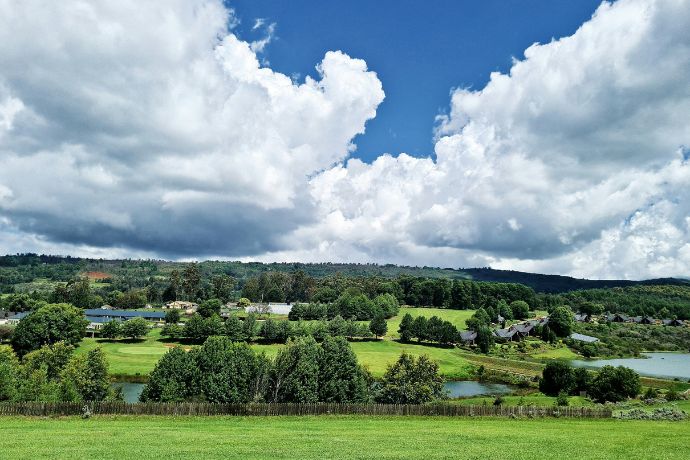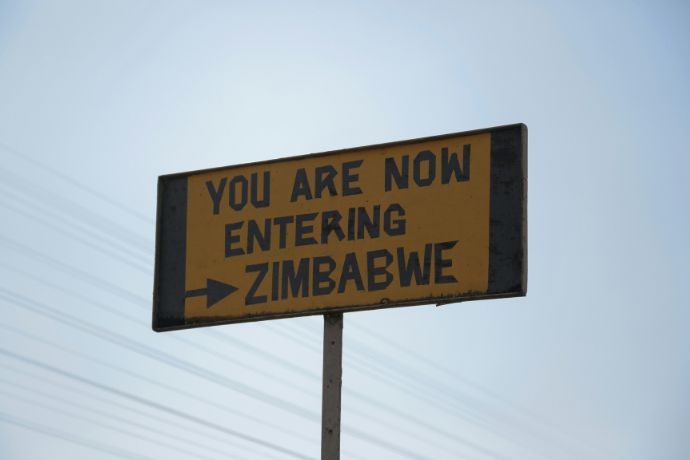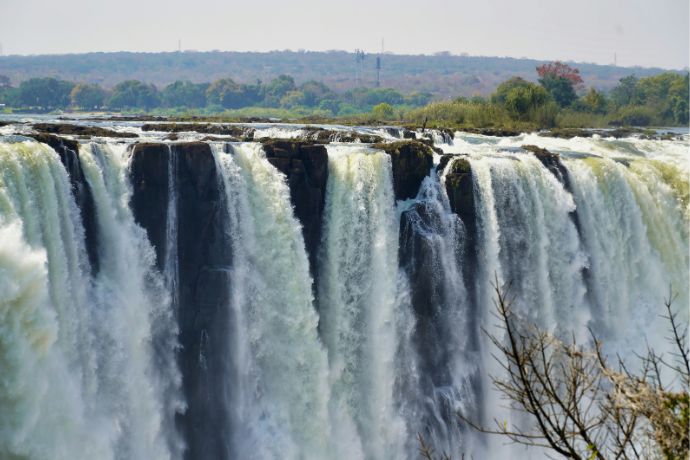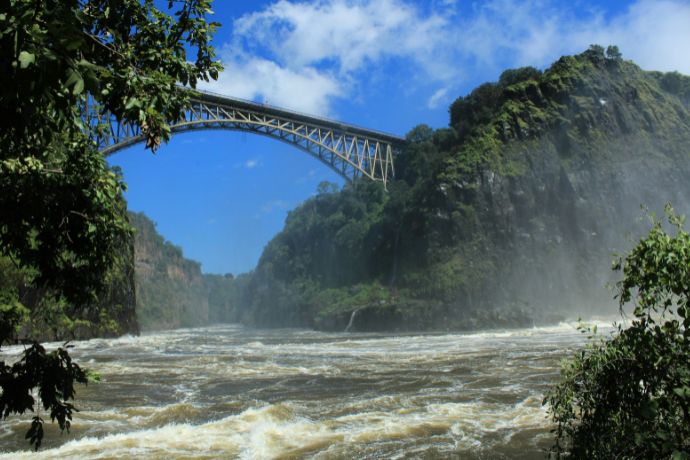- Blog
- International insurance
- Zimbabwe Travel Safety: What Every Traveler Should Know
Zimbabwe Travel Safety: What Every Traveler Should Know
Zimbabwe is a fascinating tourist attraction destination in Southern Africa with magnificent waterfalls, wildlife, and a richly established cultural heritage. The country showcases an adventure that cannot be forgotten, from the largest savannahs of Hwange National Park to the world-famous Victoria Falls. However, one should know Zimbabwe travel safety before they set out on a trip.
This is a detailed guide that covers the existing safety status, health tips, transport tips, precautions in wildlife, and so on. Ultimately, you will have all the information to know how to help you explore Zimbabwe knowledgeably and responsibly in 2025 and beyond.
 A large field in Nyanga, Zimbabwe
A large field in Nyanga, Zimbabwe
Current Safety Situation in Zimbabwe
Zimbabwe has made efforts to rebuild and stabilize its tourism industry in recent years. Although Zimbabwe has faced political and economic instability in previous years, most major tourist destinations are currently calm and generally considered safe, though occasional demonstrations may occur in larger cities. The major tourist destinations like the Victoria Falls, Bulawayo, and Harare are well-policed and have a good tourist infrastructure.
Overall, travel safety in Zimbabwe has improved in some areas, especially around major tourist destinations where authorities and tour operators work closely to protect visitors. Theft and fraud may happen, especially where there are a lot of people in the market, such as in the city; however, violent crime committed against the tourist is uncommon.
Zimbabwe is relatively peaceful compared to some neighboring countries such as South Africa, though travelers should note that Zambia generally enjoys greater political stability. When it comes to answering the question of whether Zimbabwe is safe to travel or not, the simple answer is yes, as long as one knows the bare minimum and is well prepared.
 A street sign that says you are now entering Zimbabwe
A street sign that says you are now entering Zimbabwe
Safety in Major Cities and Tourist Regions
Harare
The capital of Zimbabwe is vibrant and cosmopolitan, and it features a blend of modern cafes and markets as well as historical sites. Nevertheless, one must remain cautious when in crowded places, not walk alone at night, and use trusted cabs or ride-hailing applications. Some of the neighborhoods, like Avondale and Borrowdale, are safer and friendlier to tourists.
The security is generally good at the hotels in these places, which include 24-hour guards and secure parking. Do not flash the valuables, and make sure that you have a copy of your passport without the original.
Bulawayo
The second-largest city in the country, Bulawayo, is less congested and warmer. It is the cultural center of Zimbabwe, and it is enclosed by national parks and archaeological sites. The safety risks in this case are minimal; nevertheless, one should use reliable transportation and keep their own things close during the time in a public space.
The locals are hospitable and can be of much help, making the locals assist their visitors by giving directions and suggestions, and this is another reason as to why Zimbabwe is safe to visit among many travelers.
Victoria Falls
Victoria Falls is the gem of Zimbabwean tourism. The town is an excellent hospitality and security hub, as it has one of the most secure locations in the country as a visitor spot. During the day, there is minimal risk of walking around; however, there is wildlife like baboons that are known to roam around hotels.
The adventurous activities, such as bungee jumping, ziplining, and helicopter rides, are highly controlled and based on the global regulations of safety. Local guides are trained in order to make sure that the experience is both exciting and safe.
 Victoria Falls in Zimbabwe
Victoria Falls in Zimbabwe
Health and Medical Safety
Health is the most important thing when considering the Zimbabwe travel safety. This nation has gone a notch higher to enhance healthcare facilities within the large cities, but rural medical services might be restricted.
Here are essential health tips for every traveler:
- Vaccinations: Recommended shots include yellow fever (if coming from a risk country), hepatitis A and B, typhoid, and tetanus.
- Malaria prevention: Many safari areas are malaria zones, so bring mosquito repellent and take prescribed antimalarial medication.
- Drinking water: Always drink bottled or boiled water; avoid ice cubes in local eateries.
- Food safety: Stick to restaurants with good hygiene standards. Street food can be tasty but choose wisely.
To be sure of peace of mind, it is highly advisable to buy travel insurance in Zimbabwe that will cover medical emergencies, flight cancellations and personal belongings. Comprehensive travel insurance—such as plans offered by providers like Travelner—can cover medical emergencies, trip cancellations, and lost belongings. Its 24/7 customer support, cashless access at hospitals, and prompt claim options make it easy to be worry-free about wherever you are going with your adventures.
Transportation and Road Safety
A journey within Zimbabwe is enriching and difficult. The road system linking big towns and parks is reasonably good but other rural roads might contain potholes or not be lit.
- Car rentals: If you plan to drive, rent from a reputable company and check the vehicle condition before departure. Drive defensively and avoid nighttime travel due to limited visibility and stray animals.
- Public transport: Buses and minibuses are cheap but often overcrowded and poorly maintained. Keep an eye on your luggage.
- Taxis: Use registered taxis or apps like Vaya Zimbabwe for safer rides.
- Domestic flights: The most convenient and reliable option for long-distance travel, especially between Harare, Bulawayo, and Victoria Falls.
In summary, with good planning and common sense, With good planning and common sense, travel safety on Zimbabwe’s roads is generally manageable.
Wildlife and Safari Safety
Zimbabwe is famous for its extraordinary safaris — but remember that the animals you’ll encounter are wild and unpredictable.
To ensure your safety:
- Never leave your vehicle inside a national park.
- Always follow the guide’s instructions during game drives.
- Keep a respectful distance from elephants, lions, and buffalo.
- Do not feed or provoke animals under any circumstances.
Other issues during safari visits are the mosquito bites, and hence wear long-sleeved clothes and use repellents. Overall, the safari tourism in this area is substantially controlled, which makes Zimbabwe safe even to travel with families and individuals.
 Zambezi River in Victoria Falls, Zimbabwe
Zambezi River in Victoria Falls, Zimbabwe
Money, Scams, and Local Etiquette
Zimbabwe uses a dual-currency system, with both the U.S. dollar and the local currency (ZiG) in circulation. Most of the hotels, lodges and tour operators take USD in terms of payment. There are ATMs in cities, although it helps to keep small denominations in cash.
Also watch the exchanger of street money who says he can get you a better rate, but this may be a ruse. Transact money in legitimate bureaus or banks.
Other travel tips:
- Avoid showing large amounts of cash in public.
- Politely decline anyone offering unsolicited help at airports or ATMs.
- Always check restaurant or taxi bills before paying.
Zimbabweans believe in courtesy and respect as far as cultural etiquette is concerned. Greet people with a greeting of 'hello' or 'makadii' in Shona. Use permission when taking photos of people or country villages.
All these are simple rules that would help in ensuring that the interactions remain positive and that your safety is enjoyed during the Zimbabwe travel.
Women and Solo Traveler Safety
Solo travelers, including women, generally find Zimbabwe welcoming and secure. The locals are hospitable, and the tourism community is used to international visitors.
However, it’s wise to:
- Book reputable accommodations with verified reviews.
- Avoid isolated areas or unlit streets at night.
- Dress modestly in rural regions to respect cultural norms.
- Join guided tours for national parks or cultural excursions.
Most women who travel to the country claim that the safe situation in the country makes it easy to move around without any supervision as opposed to other African countries.
Safety During Activities and Festivals
Zimbabwe hosts vibrant festivals such as the Harare International Festival of the Arts and traditional tribal celebrations. Crowds can be energetic but friendly. Always keep personal belongings close and avoid carrying unnecessary valuables.
For adventure seekers:
- Double-check safety certifications for tour operators.
- Ensure that equipment (for rafting, ziplining, or canoeing) is in good condition.
- Follow all briefings before participating in high-adrenaline activities.
Zimbabwe travel safety is also affected by weather. Some rural roads are muddy and rivers uncertain, especially during the rainy season (December to March). May to October is the dry season, which is suitable for taking a safari and outdoor adventure.
Emergency Contacts and Useful Resources
Here are essential contacts every traveler should note:
- Police Emergency: 995 or 999
- Ambulance: 994
- Fire Department: 993
- Tourist Helpline: +263 4 758730 (Zimbabwe Tourism Authority)
- Victoria Falls Hospital: +263 213 2843211
- Harare International Airport Information: +263 242 575150
You can also use apps like Google Maps, WhatsApp, and ZimTourism for real-time navigation and safety updates.
Having a printed copy of emergency numbers and your insurance provider’s hotline (such as Travelner Insurance) can make a major difference in unexpected situations.
Final Travel Safety Tips
To sum up the essentials for a safe and enjoyable trip:
- Make digital copies of passports and travel documents.
- Avoid flaunting jewelry, electronics, or cash.
- Follow local laws and park regulations.
- Keep loved ones informed about your itinerary.
- Purchase comprehensive Travelner Insurance coverage before departure.
With these measures, Zimbabwe travel safety becomes straightforward — letting you focus on the beauty, wildlife, and hospitality that make this nation unforgettable.
Conclusion
The beauty of Zimbabwe is in its contradictions—wilderness and domesticity, tradition and comfort. No place is absolutely safe, but with some prior knowledge, one can visit it without any trouble.
With a sensory vigilance, attentive observation of local cultures, and the right choice of insurance cover by Travelner Insurance, the travelers are assured to experience all the African jewel has to present without any worry.
Overall, Zimbabwe can be a safe and rewarding destination when travelers are well-prepared, stay informed, and follow local advice. There is adventure around every nook and cranny of this great country.
Explore tailored travel insurance and protect your trip now!
Related articles

Nov 27, 2025
Travel Insurance for Australia: Your Essential Guide

Nov 27, 2025
Cancel Any Reason Travel Insurance Australia: Ultimate Guide for Flexible Travel Protection

Nov 27, 2025
Travel Insurance Australia Family: The Complete Guide for Safer Family Adventures

Nov 27, 2025







